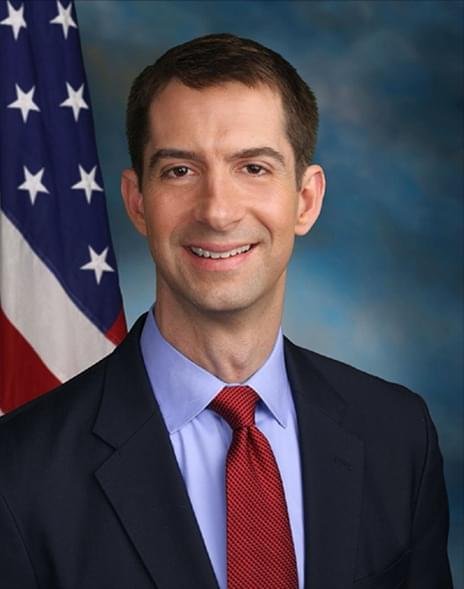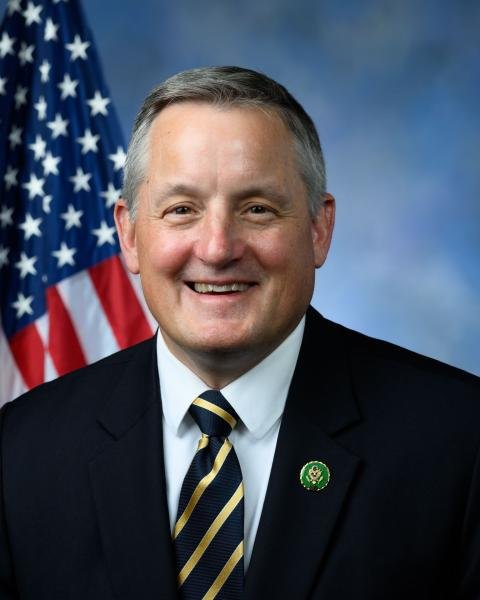What seemed like “forever” — or at least since March 2022 — the Fed has inched up interest rates 11 times to try to slow inflation.
In its final action of the year, “the Fed has decided to hold interest rates at 5.25 to 5.50 percent for the third straight meeting of Federal Open Market Committee,” Loy said.
While that wasn’t a surprise, the Fed’s signaling for just three interest rate cuts of 0.25 percent each in the coming year, was.
“The markets were expecting six rate cuts in 2024 and that stocks and bonds would rally on that expectation,” Loy said. “While it hasn't happened yet, fewer cuts could mean the exact opposite, with stocks and bonds declining because of more expensive borrowing at the higher rates.”
Despite fears of a recession in early 2024, “I don't believe that anybody in the Fed or in the banking world thinks that we're going to be in a recession in at least the first quarter of 2024,” Loy said. “We're still going to have a pretty strong consumption and a strong economy.”
Looking ahead, Federal Reserve Chair Jeremy Powell said Fed will not be influenced on its rate decisions during the presidential election year.
“We don’t think about politics, we think about what’s the right thing for the economy,” he told reporters during a livestream following the Dec. 13 meeting.
“We believe we are likely at or near the peak rate for this cycle,” Powell said. “We’re seeing inflation making real process. No one is declaring victory. That is premature.”
FERTILIZER
The global economy settled in the year since the shock brought on by the Russia-Ukraine conflict, helping drop fertilizer prices.
“Overall, fertilizer prices across North America fell about 34 percent between January and July according to Bloomberg Green Markets,” said Hunter Biram, extension economist for the University of Arkansas System Division of Agriculture. “This is because it was a relatively warmer year than 2023 compared to 2022 which eased demand pressure on natural gas, a key input in the production of nitrogenous and phosphorous fertilizers.”
In the south-central U.S. — Arkansas, Kentucky, Louisiana, Mississippi, and Tennessee — urea fell 31 percent year-over-year to 20 cents per pound of fertilizer. Diammonium phosphate, or DAP, fell 40 percent, year-over-year to 26 cents per pound of fertilizer. Potash fell 41 percent year-over-year to 23 cents per pound of fertilizer.
The conflict was no small shock for the global economy. Russia ranks first, second, and third in nitrogen, phosphorus and potash fertilizer exports while Ukraine accounts for a much smaller market share. Ukraine was third globally for corn exports and seventh for wheat. Russia is the world’s top wheat exporter.
CORN
“We were looking at almost a $6 futures price at the start of the season, and it fell to about $4.84 which is about 82 percent of the projected price,” Biram said.
“Corn came in at 2.1 million acres greater than what was projected in the ‘Prospective Plantings’ report,” he said. “That's a big deal. More supply driven by more corn production, generally translates into higher stocks on hand at the end of the growing season.”
In addition to more domestic production, Biram said weak exports were a driving force behind the price drop in corn.
“Total exports for the 2022/2023 marketing year came in at 26 percent less than the five-year-average and 34 percent less than the 2021/2022 marketing year,” he said. “Brazil and China entered into a bilateral trade agreement in the summer of 2023 which resulted in total exports to China for the 2022/2023 marketing year being slashed in half.”
“On the flip side, things were less favorable for soybeans compared to corn,” Biram said.
Soybeans started the season at $13.65 versus the $5.94 for corn, but many growers opted to grow corn instead.
“You have to look at the production per acre. With corn, we're looking at about 175 bushels per acre, with soybeans, more like 50 bushels per acre,” Biram said. “The driving question behind the shift in acreage is ‘What do per-acre returns look like? The answer came in the form of increased planted acreage for corn and decreased acreage for soybeans.”
COTTON
Cotton was the only commodity that didn’t end the season with a lower price than the pre-season prediction, starting and ending at 85 cents a pound.
“Margins were not favorable by most yields across the state. Farmers had to make 1,200 pounds per acre or more, but the 2022 state average yield was closer to 1,100 pounds per acre,” Biram said. “Acreage was down as a result. High stocks and sluggish demand from millers resulted in depressed prices compared to 2022.”
“The outlook on demand for cotton lint is more favorable moving into 2024, but it may not be enough to raise the price up above 90 cents per pound,” he said.
RICE
In 2023, the world was eating more rice. The projected price for rice was $16.90 per hundredweight and $16.10 at harvest. Rice started strong because “consumption outpaced production in the global rice market,” Biram said.
And while U.S. harvested acres increased by 680,000 acres in 2023 compared to 2022 following two straight years of decline in harvested acreage, global production remained flat at 25.11 billion bushels.
“Global consumption increased 270 million bushels to 25.5 billion bushels,” Biram said. “This left global ending stocks mostly unchanged which left rough rice futures to remain above $16 per hundredweight, leaving the price at a level not seen since July 2013.”
SOYBEANS
Headed into the 2023 growing season, soybeans were projected at $13.65 a bushel, at harvest, the number fell to $12.84.
Biram said margins were less favorable for soybeans compared to corn and acreage dropped from expectations. The Prospective Plantings report pegged U.S. soybeans at 87.5 million acres. The Acreage Report found 83.5 million acres.
A significant factor was Brazil’s record soybean production of 5.88 billion bushels.
“This is a 23 percent increase over the 2021/2022 marketing year,” Biram said. “Brazil accounted for 43 percent of global production in the 2022/2023 marketing year while the U.S. accounted for 31 percent of global production.”
INSURANCE
Biram said one positive outcome from the 2023 growing season, “was that we saw much fewer losses compared to 2022, despite more acres being enrolled in crop insurance for corn and rice.”
According to the USDA, total losses in 2023 were $114 million across the U.S., compared with $345 million the previous year. The breakdown:
Corn: $28 million, which was about $27 million less than 2022 on 14,000 more insured acres.
Soybeans: $20.4 million, which was about $47 million less than 2022 on 159,000 fewer acres
Cotton: $2.5 million, a little more than $67 million less than 2022 on 100,000 fewer acres
Rice: $55.5 million, which was $92 million less than 2022 on 122,000 more acres.
To learn about extension programs in Arkansas, contact your local Cooperative Extension Service agent or visit www.uaex.uada.edu. Follow us on X and Instagram at @AR_Extension. To learn more about Division of Agriculture research, visit the Arkansas Agricultural Experiment Station website: https://aaes.uada.edu. Follow on X at @ArkAgResearch. To learn more about the Division of Agriculture, visit https://uada.edu/. Follow us on X at @AgInArk.





















